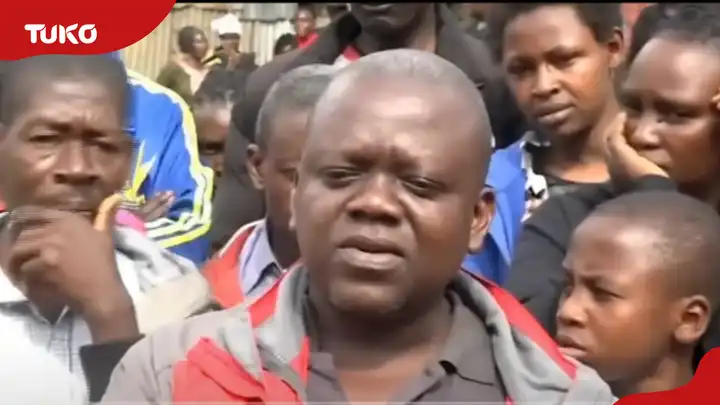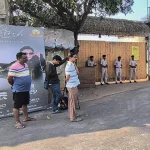In the early hours of that fateful night, things that seemed ordinary turned into nightmare. For Wycliffe Olumi, the glow of his home in Madoya, Huruma, Nairobi, was not the promise of rest but the igniting point of tragedy.
The Blaze Begins
The inferno started with a gas cylinder explosion in one of the iron-sheet houses that cluster tightly in the Madoya slums. Within minutes, the flames spread, fuelled by the tightly packed huts, wooden supports, and combustible materials. Tuko.co.ke – Kenya news.+2The Eastleigh Voice News+2
Wycliffe had stepped out for just a moment. Then the frantic phone call: his daughter cried saying their mother had stayed behind. Neighbours were already screaming, water buckets beating at walls, but the fire was too strong, too quick. Tuko.co.ke – Kenya news.
A Family Torn Apart
He rushed back to find his home engulfed in flames. In the chaos, he found no way to reach the people he loved most. By the time help arrived (or when the flames had done their worst), the results were devastating:
-
His wife and daughter died — she succumbed while receiving treatment at Kenyatta National Hospital. Tuko.co.ke – Kenya news.
-
Other children were caught in the fire; some injured, some missing. The home, plus all possessions, were destroyed. Wycliffe has “lost everything” — his shelter, his belongings, his sense of normal. Tuko.co.ke – Kenya news.+1
Loss, Helplessness, and Blame
What haunts Wycliffe now is not just the loss, but what felt like helplessness — neighbours trying to help with buckets, firefighters arriving late or ill-equipped, blocked access routes. He says that by the time he got to the scene, the fire had already eaten through walls, rooms, memories. Tuko.co.ke – Kenya news.+2The Eastleigh Voice News+2
People in the community point fingers — at local officials, at the county administration, at weak infrastructure. Many believe the tragedy could have been much less severe if emergency response had been faster and if safety regulations for gas cylinders were better enforced. The Eastleigh Voice News+1
What Was Left & What Comes Next
For Wycliffe, the flames didn’t just destroy his home — they destroyed nearly everything he had built. He now faces:
-
Mourning two beloved family members while trying to be strong for others. Tuko.co.ke – Kenya news.
-
Rebuilding life from scratch: finding shelter, replacing basic items, finding a way forward in the dark. Tuko.co.ke – Kenya news.
-
Dealing with trauma. The night’s sounds, burning smells, screams — these stick with him.
Yet amid the ashes there is something fragile but real: hope. Neighbours, charity groups, and volunteers are stepping in with relief efforts — clothing, food, blankets. The community is trying to hold the broken pieces together. K24 Digital+2The Eastleigh Voice News+2
The Bigger Picture
This single story reflects a broader issue — in informal settlements, many are vulnerable to disaster:
-
Densely packed housing means fires spread fast.
-
Safety regulations and inspections are often weak or unenforced for gas cylinders.
-
Emergency services can be slowed by poor roads, blocked access, or insufficient resources.
-
When tragedy strikes, families often lose everything — lives, homes, livelihoods.
A Life Forever Changed
For Wycliffe Olumi, that night changed everything. He will always carry the grief of losing loved ones, but also a reminder — that life can turn in an instant. He is now tasked with rebuilding, not just physically, but emotionally.
His story is not just a page in the paper — it’s a testament to survival under unimaginable odds, and a call for better protections for those living on society’s edges.










